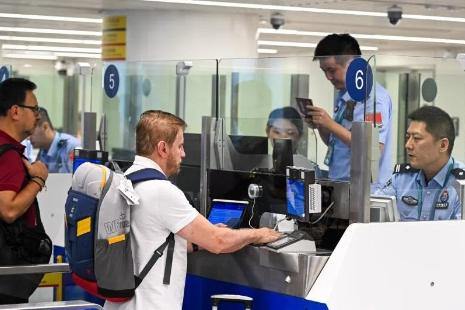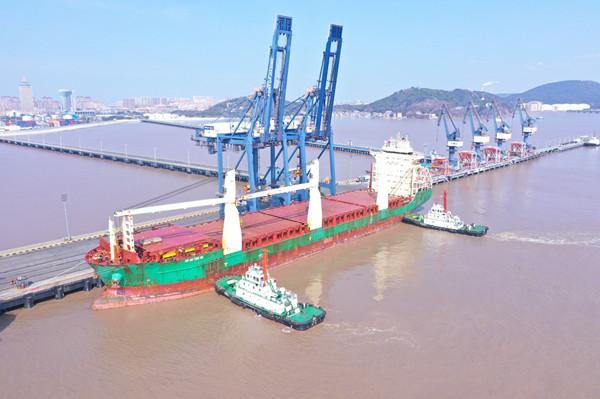We rely on the orderly fabric of global multilateralism and effective governance institutions. As Covid-19 demonstrates, there can be no comprehensive national solutions to global challenges. We need fully functioning global governance institutions instead of going it alone approaches. The scope of multilateralism has expanded. Serious structural challenges such as climate change, information technological revolution, and dynamics of globalized economy have placed heavy demands on the resources of international governance. Besides these emerging expanded areas where order, security, and justice are in great demand, the core issue of global order is under pressure as well. Challenges of war and peace need to be tackled, managed, and solved. However, the increasing great power competition is reducing the likelihood of finding common sense in these acute issues. Moreover, it appears that our time can be regressive rather than progressive. Power political competition is engulfing the domains of emerging and expanded areas such as the cyber digital domain and global trade.
We will seek to find answers to the key questions of multilateralism: Is multilateralism in crisis- or a state of transformation? What kind of initiatives can strengthen multilateralism?
The Covid-19 pandemic continues to upend our economies, societies, our lives, and our security. Meanwhile, climate change is worsening with superstorms, extreme heat, flooding, wildfires, and droughts, all expanding in both frequency and intensity. Covid-19 has underlined the interconnectedness and also offered us a glimpse of the possible global disruptions that will arise from climate change shortly. This includes but is not limited to mass migration, increased conflict, elevated public health risks, turmoil to supply chains, and projected economic crisis. Both pandemics and climate change are inherently global issues that require a strong multilateral response and increased international cooperation.
I firmly believe that we must elevate our sustained efforts to reinvigorate multilateralism to holistically address the inherently global challenges of both today and tomorrow. Despite an increase in nationalist isolationism in recent years, our biggest challenges remain intrinsically global. Words are simply no match for viruses, wildfires, cybersecurity attacks, and other transitional threats. As such, we require a solution underpinned by multilateral cooperation, sustainability, inclusion, and partnership. The great importance of reinvigorating and building a more inclusive multilateralism, one that is fit for purpose to steer our collective future.
First, I will underline the critical role of the United Nations in this process as well as offer some concrete recommendations that organizations should pursue. Second, I will discuss the necessity of achieving UN SDGs and the Paris Agreement on Climate Change to help anchor and enhance multilateral cooperation at this time when it is greatly needed. And third, I will highlight the utility of some forward-thinking initiatives to help guide the future of multilateralism and a new path in a changing world.
At the time when a global pandemic is ranging, climate change is worsening, democracy is under threat, crises are converging, and we must elevate cooperation to persevere over the great challenges before us. At the same time, despite the monumental challenges we face, it seems like there is now a visible, highly illuminating way out of the darkened tunnel. After Covid-19 cases and deaths, a variety of safe and effective vaccines are beginning to be distributed. However, to holistically reinvigorate and rebuild multilateralism, the ongoing role and great importance of international organizations such as the United Nations is vast. And this is now more important than ever in aiding the global recovery from the Covid-19 pandemic.
With the United Nations in the lead, our multilateral recovery from this pandemic and its secondary impacts must also combat climate change and environmental degradation to steer us to a more inclusive, sustainable, and resilient future. Indeed, we must build back better and build back greener by constructing healthier societies for all the people and our planet. And this is ever more important as the United Nations has just celebrated its landmark 75th-anniversary last year.
To lead the world on a brighter future path, the United Nations must leverage as a unique strength and convening power under the banner of reinvigorated multilateralism. And countries like China and Morocco have a prominent role to play to fulfill this vision.
I’d like to draw the following five-point action plan, to reinvigorate multilateralism. First, it calls on all leaders to first re-commit to the guiding values of the United Nations Charter. Second, to empower the United Nations to fulfill its mandate for collective action on peace and security. Third, to strengthen health systems to tackle Covid-19 and prepare for future pandemics. Fourth, to demonstrate great ambition on climate change to meet the Paris climate change target. And fifth, to mobilize support for all the UN sustainable development goals.
In this era of pandemic, division, uncertainty, planetary warming, we should urgently recommit to the Agenda 2030 and sustainable development goals and the Paris Agreement. This will help us bring ourselves closer together, build back better from Covid-19, and revitalize multilateralism when it is now needed more than ever before.
We all must ensure that the UN’s global goals are prioritized all around the world as they can serve as a guidepost towards the construction of a brighter world and a better multilateral future for all.
The pandemic has made it painfully clear to all of us that a reaction centered on health, sustainability, security, inclusivity, and prosperity is greatly needed. We are now one year into the beginning of the decade of action to fulfill the promise of UN sustainable development goals and leave no one behind. This is one of the most important ways to synergize multilateralism to help build back better in the post-Covid-19 world.
Unfortunately, however, many of the hard-won development gains over the past few years are now in danger of being lost. We are seeing travel reversals as a result of Covid-19 and economic and societal aftershocks of a multitude of SDG targets. At the same time, the pandemic is amplifying existing inequalities in healthcare, labor, education, housing, food, gender, and other key areas. As such urgently expanding multilateral cooperation and elevating multi-stakeholder partnership efforts on the SDGs and climate action would help enhance social inclusion in both the pandemic and post-pandemic world. Doing so also would advance human rights, boost sustainable growth, promote gender empowerment, fortify public health, scale-up education, and much more.
Despite the return to Great Power competition in global politics, I think we are likely to see a shift towards a more multipolar world in the post-Covid-19 future. And this will provide opportunities for other countries and groups to pick up the mantle of global cooperation and promote their multilateral visions.
We must remember that in our interconnected world, global problems can only be solved through global solutions. Populist nationalism, Great Power competition, and isolationism are simply not viable alternatives to cooperation and partnership. Major crises such as pandemics and climate change demonstrate this. Covid-19 will not be defeated by individual nations nor will our deepening climate crisis. International cooperation is the glue that binds us all together. And the United Nations system remains a cornerstone. As such, we must reinvigorate multilateralism with the United Nations in the lead and its global goals as our roadmap to build back better, help proper climate action, and steer our planet and humanity towards a move viable trajectory.
Fundamentally, our recovery from this pandemic synergized by elevated multilateral action must guide us to a more inclusive, sustainable, and resilient future, for all people and our planet. It must be more inclusive to ensure that no one is left behind, including marginalized communities and the most vulnerable. It must be more sustainable, so we can build our economies and societies back greener and simultaneously combat worrying inequality levels, biodiversity loss, CO2 emissions, extreme temperatures, and ecosystem damage. And it must be more resilient to give humanity and our planet the right tools to confront the next major pandemic, security crises, humanitarian disaster, or environmental tipping points.
Empowering women and young people and elevating the importance of global citizenship is critical in this regard. We simply will not be able to create the future we want without women and youth dynamically leading us forward together. As such, we must do much more to scale up their rights, empowerment, participation, and leadership capabilities to forge a more equitable, peaceful, and sustainable, and prosperous post-Covid-19 multilateral world forum.
At the beginning of 2021, and now in the second year of this pandemic, we found ourselves living in unprecedented times. But times can offer unique opportunities as well if we come together under the guiding principles of multilateralism with an equally unprecedented response.
I firmly believe that we have a generational opportunity to build back better, help synergize climate action, and steer our planet and humanity towards a more sustainable and inclusive multilateral future. With our continued active effort to this end, I am confident that we can harness this pandemic as a gateway to a brighter world for all.
(The author is a Ph.D. scholar at the School of Information Management at Wuhan University. She won the Belt and Road Tourism ambassador 2019, the Outstanding African Student in China 2018, the Cultural Achievement Award by UNESCO, the Wuhan University Outstanding International Students award, and the Maotai Scholarship "excellent academic performance and outstanding overall performance". )
The proceeding article reflects the opinions of the author and not necessarily those of In Zhejiang, its staff or management.




